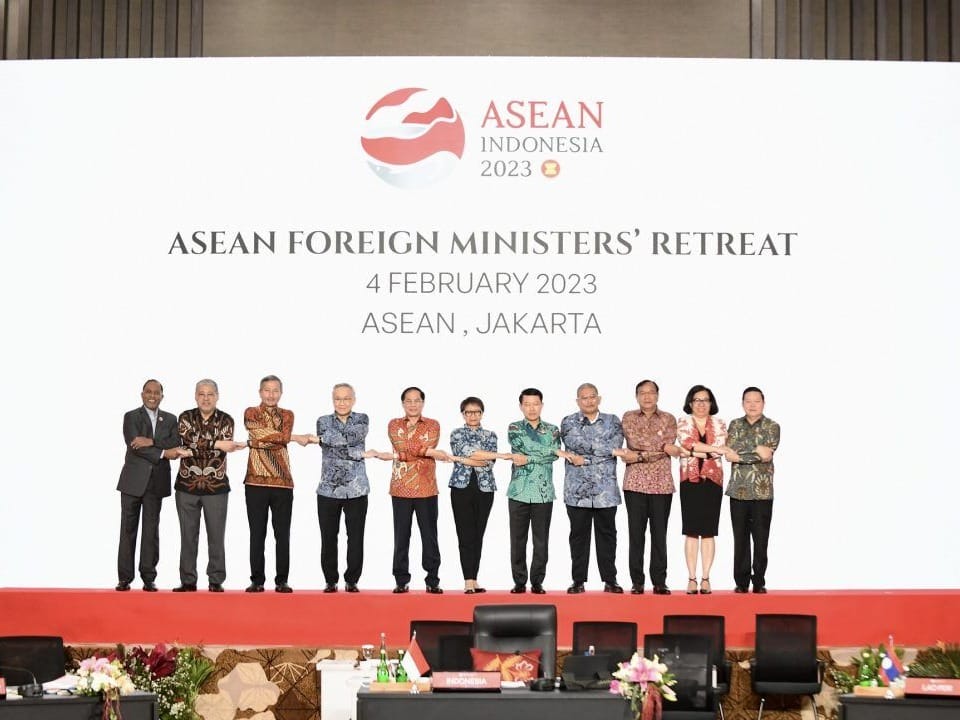Myanmar's military coup and conflicts over the South China Sea dominated a two-day meeting of Southeast Asian foreign ministers, who have sought to end Myanmar's crisis through a five-step consensus and to defuse tensions with China through a proposed agreement.
Hosted by Indonesia in Jakarta, the meeting of ministers from the Association of Southeast Asian Nations, or ASEAN, ended with a 53-point press statement on Saturday that also expressed "grave concerns" over nuclear-armed North Korea's intercontinental ballistic missile testing and ballistic missile launches.







